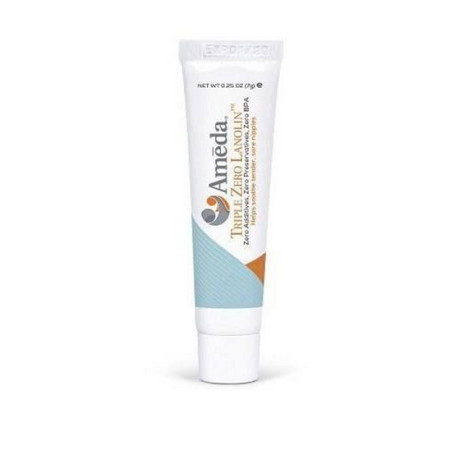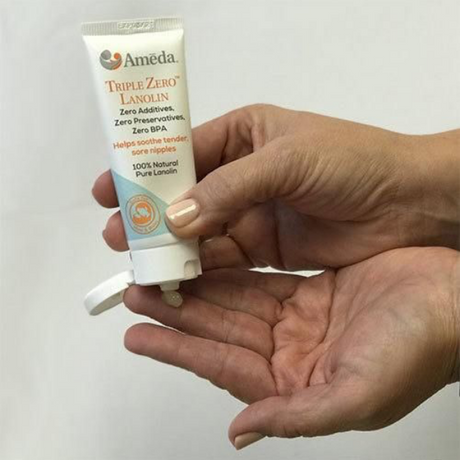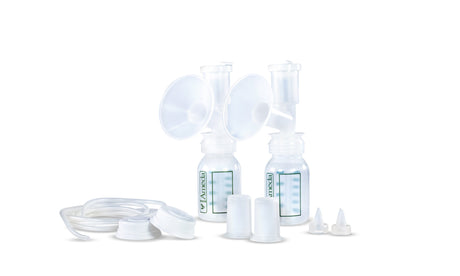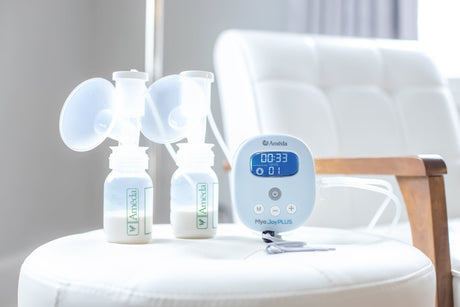Published:
You’ve heard that breastfeeding is an ideal choice for your baby’s nutrition. In fact, you may have heard so much that you’re starting to wonder if the benefits are too good to be true. What can breastfeeding offer your baby? We’ve got the science-backed answers for you.
Perfect Nutrition: Fact
Most parents don’t breastfeed because they think it’s medicine. You nurse because you believe breast milk is food, and not only that, but the best possible food for your newborn.
Guess what: That belief is scientific fact! Breast milk is uniquely suited for human babies. It’s got the ideal balance of liquid, fats, proteins, sugars, and the complete set of vitamins and minerals a baby needs. What’s more, while each bottle of a brand of formula is the same, breast milk changes over time and even during the day to adapt to your growing baby. Major health organizations recommend exclusive breastfeeding for the first 6 months of life.
Antibodies to Fight Disease: Fact
In developed countries, formula is almost as safe and nutritious an option as breast milk, although it won’t customize nutrients to your baby. One thing no formula can offer is an extra supply of antibodies.
Your body’s milk is full of disease-fighting antibodies, including some types your baby can’t easily produce for himself after birth. Scientists have captured amazing footage of breast milk killing bacteria in a petri dish! This explains why you have to toss leftover formula after a feeding, but you can store partially finished breast milk in the fridge for a few hours.
Reduced Ear Infections: Maybe Fact
Researchers have been investigating a possible link between breastfeeding and reduced ear infection rates for years. An analysis of over 20 reviews and articles found that breastfeeding past the 6-month mark seems to reduce ear infection risk for the first 6 years of life. Why “seems,” if so many articles focused on the question? There aren’t any randomized, controlled trials (the gold standard for scientific research), and different authors varied in how they measured results. A few studies suggest that breastfeeding protects against ear infection, but the medical community overall needs more evidence to be sure.
Lower Rates of Other Infections: Fact
Research on some other types of infection shows clearer results than ear infections. A study of 15,809 infants found that babies who were exclusively breastfed for at least 4 months had significantly lower rates of chest infection and diarrhea. Additional research also supports the idea that breastfeeding protects babies against infection.

The antibodies in your milk can boost the power of your baby’s immune system. You can keep nursing, even if you’re sick. In fact, you probably should! Whatever bug you caught was present in your body, and milk, before your symptoms started. Nursing passes your mature antibodies along to your baby to fight off infection.
Prevention Against Asthma: Myth
When you read about breastfeeding benefits, it’s easy to see why many parents and lactation consultants get excited! It can feel like there’s a study out there linking breastfeeding with just about any positive result imaginable. Higher IQ, lower asthma, better-adjusted kids, you name it. Unfortunately, not everything you read online can be true, or sometimes the results are more complicated than they appear. (In the case of IQ, for example, moms with higher IQ are also more likely to breastfeed, so it’s difficult to say whether babies get their smarts from the milk or inherit IQ from their parents.)
Preventing asthma is another benefit that doesn’t hold up to closer examination. An article reviewing 89 studies found some evidence linking lower asthma rates with breastfeeding, but pointed out that those studies were low quality. Overall, the authors weren’t able to confirm a strong link.
Healthy Weight Gain: Fact
Doctors and many parents worry about possible health risks from childhood obesity. At the same time, it’s healthy for most babies to triple their birth weight in the first year. Breastfeeding can help your baby grow at a healthy rate.
Breastfeeding lets your baby determine the right amount to eat. Your body adapts to produce milk in response to your baby’s appetite. One drawback of bottle-feeding is that you might be more likely to take cues from the bottle (“There’s still some left”), rather than the baby (“You look like you’re done”). Studies suggest that breastfed babies grow more slowly, and that overweight moms who nurse tend to have slimmer babies. Both results are good indicators that breastfeeding might play a role in preventing childhood obesity.
Of course, healthy eating is a lifelong practice. Offering reasonable portions, a balanced diet, and plenty of playtime throughout childhood matters more than whether you nursed when your baby was an infant, but following your baby’s appetite cues is a good start for both of you.
Allergies: Myth
Allergies happen when your body mistakes something relatively harmless, like dust, for a much more serious threat, and kicks defenses into overdrive. Allergies can range from irritating to life-threatening. No wonder you want your kid to be allergy-free!
Allergies are often caused by a complex mix of factors, so it makes sense that there isn’t an easy prevention, either. Simply choosing to breastfeed won’t protect your child against allergies. Instead, you can ask your pediatrician about multiple ways you can reduce risk (keeping a smoke-free house and introducing allergenic foods like peanuts early may help). If your baby does develop an allergy, don’t blame yourself, and ask your doctor about any steps you should take.
Breastfeeding Is Only Good for Babies: Myth
Most media images of breastfeeding are of moms with infants. Organizations like the WHO and AAP base most recommendations on breastfeeding during a baby’s first year. But if you and your little one aren’t done nursing, there’s no reason to wean just because you blew out that first birthday candle. For a toddler, breast milk is still an excellent source of:
- Fat (essential for brain growth!)
- Protein
- Calcium
- Vitamin A
- Vitamin B12
- Vitamin C
- Folate
They’ll still get the antibodies when they’re sick. Most importantly, if nursing is a way for you to get some snuggling and bonding time, that emotional connection is a perfectly valid reason to keep breastfeeding.
With so many research-backed benefits, it’s clear why breastfeeding is the top choice for pediatricians, health organizations, and many moms. What breastfeeding benefit surprised you most? Which is most important to you? We’d love to hear your stories!
DISCLAIMER:
Ameda strives to present you with accurate and useful breastfeeding information. This article may contain information and ideas that are not necessarily the views of Ameda. It does not constitute medical advice. If you have any questions please contact your healthcare professional.







